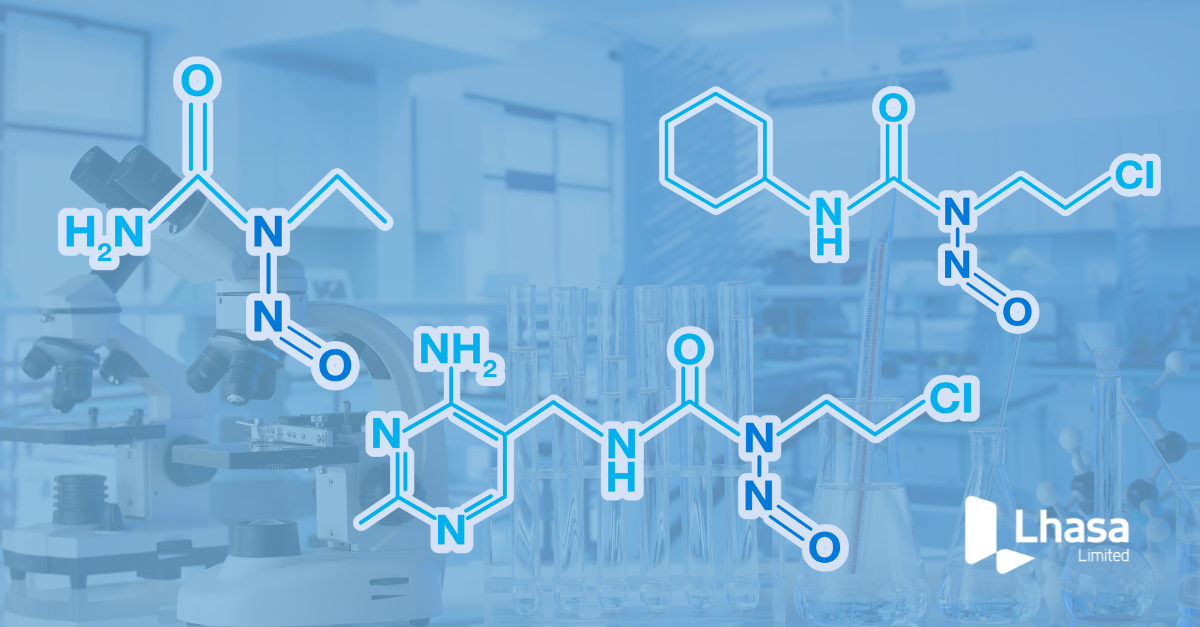The 2024 Richard Williams Memorial Award was proudly presented during the 37th annual Industrial Genotoxicology Group (IGG) meeting in Cambridge last December. This prestigious award, created to honour Dr Richard Williams, celebrates exceptional scientific contributions while supporting early-career researchers in the field of genotoxicology.
Last year’s winner, Caitlin Maggs, is a second-year PhD student at Swansea University under the supervision of Professor Shareen Doak. Caitlin’s research focuses on advancing the field of toxicology through the development of quantitative adverse outcome pathways (qAOPs) using physiologically relevant cell culture models.
We had the pleasure of hosting Caitlin and Professor Doak at our Leeds office, where Caitlin delivered her award-winning presentation. We caught up with her to learn more about her academic journey, her inspiring work, and what this recognition means to her.
Can you tell us about your journey in academia to date?
My academic journey started in 2020 when I completed my BSc in Biochemistry and Genetics at Swansea University. I discovered an interest in research during my third-year project in microbiology, which led me to pursue an MSc focusing on the gut microbiome and its connection to colorectal cancer.
After my MSc, I worked at Swansea University’s Healthcare and Technology Centre for about a year, where I helped to facilitate projects between academia and industry. It was interesting to see the real-world applications of academic research. I then moved into a research associate role in nanotoxicology, whereby I discovered an interest in toxicological research.
Now, I’m in the second year of my PhD at Swansea University, working on developing qAOPs using more physiologically relevant cell culture models. Outside of the lab, I’m also part of the NUKEMS committee, where we support early career researchers. It’s a fantastic group, and I love being part of a community that encourages early career development.
What inspired you to pursue this area of scientific research?
Growing up, I always had a strong interest in science, but I hadn’t considered a career in research until midway through my undergraduate degree. In my final year I completed a short lab-based research project in microbiology whereby I discovered that I really liked being in the lab and having freedom (to a degree) to pursue research questions that may arise during a project. This led me to pursue an MSc by Research which I equally enjoyed. I think a large part of the inspiration and enjoyment for research comes from your supervisors and I’ve been very lucky with mine so far!
Could you share a bit about your PhD research that led to this recognition?
My PhD research focuses on the development of qAOPs for genotoxicity using 3D liver models. Essentially, I’m working on generating data using different, more physiologically relevant cell culture models to capture more information within AOPs. The goal is to determine accurate cell culture models that most closely compare to in vivo testing to reduce the reliance on animal testing in the future.
Winning the Richard Williams Memorial Award
How do you feel about winning the Richard Williams Memorial Award?
I’m really excited and honoured to have won this award. Everyone I’ve spoken to about Rich has nothing but amazing things to say about him, both as a person and as a scientist, so it’s incredibly humbling to be recognised in his name. Winning this award early in my PhD journey is such an encouraging milestone for me. It’s a huge confidence boost and reassures me that I’m heading in the right direction.
I’m looking forward to work related travel opportunities and attending and speaking at another conference – UKEMS in York. It’s a fantastic opportunity to meet and learn from others in the field.
How did you first hear about the Richard Williams Memorial Award?
I had heard about this award in a previous UKEMS meeting as I attended the award winner’s presentation, and when I applied for the IGG conference, I was happy to hear that I’d been selected to present my work as part of the award application!
How does winning the Richard Williams Memorial Award directly impact you?
Thanks to the Richard Williams award I’ve been able to visit Lhasa in Leeds and meet lots of new people. I will also be attending one of the European genetic toxicology conferences, which I’m extremely excited about as I haven’t been to a European conference to date. It will be great to meet other researchers in the field from different areas of the world!
Future and perspective
What advice would you give aspiring scientists?
As an aspiring scientist, I would say that it’s important to be in a research area that you are interested in – but also not to be closed minded. During my limited number of years in research I’ve moved between a number of vastly different fields and enjoyed each of them equally!
What’s next for your research? Are there any new projects or areas you’re excited to explore?
I’m going to be exploring different end points within the AOP pathways to further develop qAOPs, as well as learning to work with the HepaRG cell line which is another cell culture model comparable to humans. I’m really enjoying the field of chemical toxicology so following my PhD I think I would like to stay in this area, but I’m also open to other areas of research!
Caitlin’s passion for her research and dedication to advancing genotoxicology is truly inspiring. Her recognition as the 2024 Richard Williams Memorial Award winner is well-deserved, and we’re excited to see where her journey takes her next.
If you’d like to learn more about Caitlin’s work, she will be presenting at the upcoming UKEMS conference in York—don’t miss the opportunity to hear her insights firsthand! Read about Raj Gandhi, the 2023 award winner here.
Last Updated on February 24, 2025 by lhasalimited



